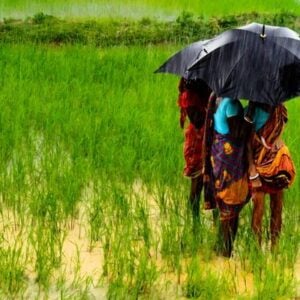Nigeria, Africa’s most populous country and largest economy, holds a critical position in shaping the continent’s development future. With vast natural resources, a large domestic market, and a youthful population, the country is rich in potential. However, Nigeria faces persistent structural issues such as inadequate infrastructure, fiscal vulnerabilities, high unemployment, and dependence on oil revenues. In response, the African Development Bank’s 2025 Country Focus Report offers timely insights into how Nigeria is navigating these challenges through reforms, resilience, and strategic partnerships.
The country has implemented bold economic reforms to diversify its economy, enhance domestic resource mobilization, and stabilize its macroeconomic environment. Key policy changes—such as the removal of fuel subsidies and adjustments to the foreign exchange regime—reflect strong political will to correct deep-rooted inefficiencies. These reforms have already shown results, with federal revenue nearly doubling between 2023 and 2024, a narrowing fiscal deficit, and increased investor confidence. Despite remaining challenges like a low tax-to-GDP ratio and a significant financing gap, these steps lay the groundwork for sustainable fiscal management.
Infrastructure remains a major focus for Nigeria, with the country facing an estimated $100 billion funding gap in sectors such as transportation, energy, and urban development. The African Development Bank has prioritized investments in infrastructure to support economic growth and regional integration. Notable progress includes improvements in power generation and access, as well as the development of large-scale projects like the Lagos–Abidjan Corridor Highway, which is expected to become a vital link across West Africa’s economic hubs.
In agriculture, Nigeria is shifting from subsistence to commercial production with the support of the African Development Bank’s Special Agro-Industrial Processing Zones (SAPZs). These initiatives aim to transform rural economies through value addition, job creation, and reduced post-harvest losses. Launched in 2025 across eight states, the SAPZ programme is projected to benefit millions of households and attract significant private investment. Meanwhile, food security efforts are bearing fruit, with increased yields and reduced dependency on imports.
Nigeria’s youthful population presents both a demographic challenge and an opportunity for economic transformation. Investments in human capital, particularly through youth-focused programmes, are helping to harness this potential. The Youth Entrepreneurship Investment Bank and the i-DICE programme are creating new pathways for employment and innovation in sectors such as technology and the creative economy. These efforts are expected to generate millions of jobs and significantly contribute to Nigeria’s GDP. Social protection measures are also expanding their reach, ensuring that growth includes vulnerable populations.
At a broader level, Nigeria’s reform-driven development model offers valuable lessons for the rest of Africa. The country’s experience highlights the power of aligning national strategies with international development finance, private sector engagement, and institutional reform. Nigeria’s progress influences regional dynamics—economic trends in Lagos affect neighboring capitals, agricultural output shapes food security, and infrastructure projects alter trade flows across the continent.
As Nigeria progresses through 2025 and beyond, the country’s trajectory remains cautiously optimistic. Key goals include maintaining GDP growth, increasing revenue collection, expanding agro-industrial initiatives, and finalizing large-scale infrastructure investments. These developments signal a transformative shift not only for Nigeria but for Africa at large. As the continent advances toward Agenda 2063 and the Sustainable Development Goals, Nigeria’s ongoing transformation stands out as a model for achieving large-scale, inclusive development.







